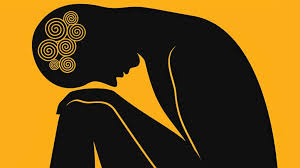板橋區文化路段421巷11弄1號 (陽光甜味咖啡館)
新埔捷運站1號出口 旁邊7-11巷子進入20公尺 看到夏朵美髮院 左轉 PM7:00--9:30
歡迎您加入 英文/知識/交友 文章請點選欄位
週四 (10/12)1.咖啡與捐血?2.憂鬱症篩檢日
上午11:19
No comments
咖啡與捐血?
Caffeine consumption affects blood
donations by young adults Taipei, Oct. 1
(CNA)
Blood donations by young adults have
decreased by nearly 40 percent in a decade, mainly because of a lifestyle
change and their habitual consumption of caffeine beverages, according to the
Taiwan Blood Services Foundation on Sunday.
The foundation held an event to promote
public health and awareness of blood donations to help other people.
Hou Sheng-mou (侯勝茂), the foundation's director, said in a speech Taiwan currently has
the highest rate of blood donations in the world but aging population and low
fertility rates have affected donations.
In 2014, 17- to 20-year-olds that donated
blood numbered 185,982, which was whopping 39 percent drop from 303,595 people
in the same age group that donated blood in 2005, according to foundations
statistics.
Li Lei (黎蕾), the
foundation's public relations head, said a decade ago, that age group made up
20 percent of blood donors but now the figure has fallen to 10 percent.
Coffee and beverages that contain caffeine
affects the body's absorption of iron, hence decreasing hemoglobin in blood. Li
suspected that low hemoglobin level in young people's blood is the cause for
approximately 14 percent of donors having their blood rejected.
To be accepted, male donors need to have 13
grams of hemoglobin per deciliter (130g per liter) and female, 12g per
deciliter (120g per liter).
In order to sustain a stable source of
blood, the foundation has started a program since June 2015 for 17-20-year-olds
to donate blood 10 times within two years. Up until Aug. 2017, only 338 persons
have completed the program.
Liu Hsin-ping (劉欣萍), a 22-year-old student studying medical science at Taipei Medical
University, has donated a total of 250 blood units, the top female donor in the
program.
One unit of blood is roughly 525
milliliters.
Liu said she takes blood donation as part
of her class schedule and has done a lot to look after her own health, to
ensure she will have healthy blood to donate.
Lu Yi-hua (呂逸華), 20,
started donating blood when Lu's grandfather was a dialysis patient; though he
passed away last year, Lu still believes that through donating blood the
grandpa-grandchild bond can be kept and the spirit of love continued.
Q:
What do you think the news reported that
caffeine consumption affects blood donations by young adults?
What is your opinion about blood donation?
Have you ever donated blood?
Did you feel our lifestyle changed?
What do you think the habit of consumption
of caffeine beverages?
Why young people like sugary beverages?
How to help others?

憂鬱症篩檢日
National depression Screening Day
For more than two decades, Screening for
Mental Health has developed programs to educate, raise awareness, and screen
individuals for common behavioral and mental health disorders and suicide. We
envision a world where mental health is viewed and treated with the same
gravity as physical health, and the public’s participation in National
Depression Screening Day helps make that vision a reality.
National Depression Screening Day, held
annually on the Thursday of the first full week in October, is an education and
screening event conducted by hospitals, clinics, colleges, and community groups
nationwide. Much like the medical community screens for diabetes and high blood
pressure, we wanted to offer large-scale mood disorder screenings for the
public. The program provides free, anonymous screenings for depression,
generalized anxiety disorder, bipolar disorder and post-traumatic stress
disorder, as well as referral to treatment resources. Screenings are held both
online and in-person and thousands of people participate each year.
Facts About Depression
General
Depression is the leading cause of disability in the U.S. for ages 15 to
44.
Depression affects more than 15 million American adults, or about 6.7
percent of the U.S. population age 18 and older in a given year.
Youth
About 20% of young people will experience depression in their teen years
and between 10% to 15% of teens will have symptoms of depression at any given
time.
About 30% of tends with depression develop problems with substance
abuse.
Depression in youth can lead to problems at school, running away, low
self-esteem, eating disorders, self-injury or disinterest in career or
educational opportunities.
Three times more female adolescents developed depression than their male
counterparts.
Men
The lifetime rate of depression is 8% in men and 12% in women, but the
difference may be due to fewer men seeking help for depression.
Men are more likely to seek treatment for the physical symptoms of
depression, than the typical symptoms associated with the disorder.
Men die by suicide 3.5x more often than women.
Suicide is the leading cause of death for men under 35, although middle
aged men have the highest risk of death by suicide.
Q:
Does national depression screening day
necessity?
How to deal with depression and sadness?
Are men are more mentally vulnerable than
women?
What to do when emotions ups and downs?
How to help someone with mental health
problems?
訂閱:
張貼留言 (Atom)


















0 意見:
張貼留言